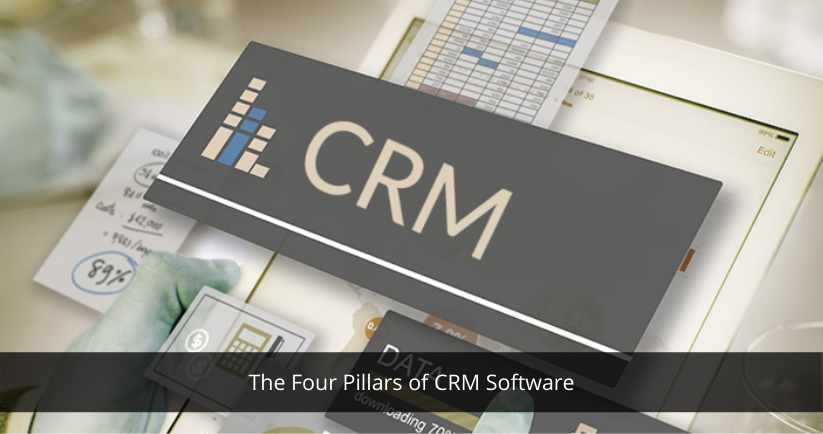A successful implementation of CRM is majorly built on four pillars such as workforce, strategy, processes and technology. To design any CRM process we need to consider each of these elements which if ignored, may result in failure of CRM implementation.
Four Pillars of a CRM Software:
Workforce
Workforce is one important pillar for a successful CRM implementation. If your workforce is not committed, efficient and well-trained on the CRM, then your efforts for increasing productivity may be in vain. Sadly though, in many businesses, workforce receives less attention than any other pillar. Here, the assumption is that if rest of the processes or pillars are in place, then workforce will naturally be optimal.
Every workforce needs to be trained to use the CRM system effectively. Training can involve online classrooms lectures, process document reading and so on. The higher management should be equally willing and supportive of the workforce during its training period. It is a huge shift from manual to going online with all the processes hence, the management has to pay more attention towards its workforce if CRM implementation has to be successful.
Strategy
Strategies are important for a company to grow and reach at their desired position. And one of the most important factors for strategies being successful is their measurement. Strategies leads to designing the road map ahead and that leads to achieving goals. It is important for the company now to know if their designed strategy was successful or no and for doing so, they need a business application tool like a CRM software for measuring roles, tasks and calculating the results.
CRM software like Sage CRM also helps in motivation of a lot of tasks which in turn, helps in making the processes more streamlined and robust. Depending on the strategies designed and mapped in the CRM, can the company identify its strengths and weaknesses perfectly and focus over areas of improvement. A CRM software also helps in defining the processes / steps of each process which will help the management to set up realistic tasks.
Process
Processes are the methods which help business to achieve their goals. They should be clearly defined, simple to understand and constantly followed up. In some ways processes are the most difficult part of the CRM pillars. Monitoring of the processes should be done to keep them on track and it should be done on daily basis, to not only find where the loopholes have occurred but also to analyze which tasks have led to positive outcome so that it can be replicated in the future.
A CRM software thrives on making seamless processes which will help the company scale up along with achieving goals. Like training is imparted to employees, same way, knowledge on processes should also be imparted to the employees – one reason being – after implementation, processes which were handled manually will be handled online now.
Technology
The fourth and last pillar of a successful CRM implementation is the Technology. Technology is an important part of a CRM implementation. Being up to date with the current technologies or the need of the customer will help you formulate your sales and marketing strategy. For e.g. Social CRM – it helps to be closer to the customers and know what they are talking about the brand. Today, it is taken that the company needs to be online but also with the latest technologies and trends that are available.
These were just some of the important criteria or pillars which would help in a successful CRM Implementation. To know more about which business software benefits your company better, write to Sales Software Solutions Pvt Ltd at sales@sagesoftware.co.in




